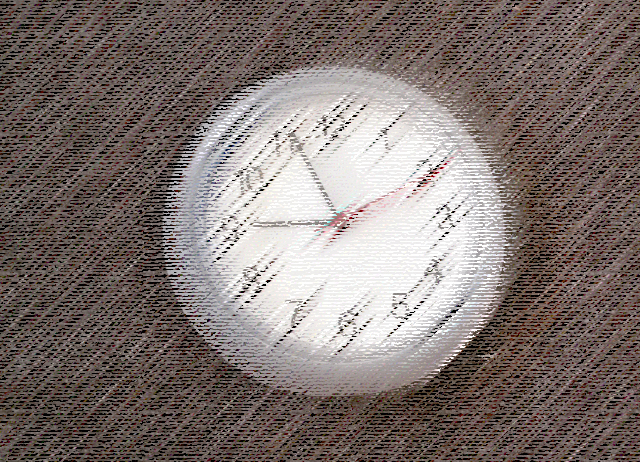It’s a rather long list. Coffee table, stained glass lamp, two storage bins, Turkish stone vase, Baluch tapestries, stoneware crock and mixing bowls, fireplace, patio table, cantina lights, solar driveway lights, window blind …
Twenty items, all told, that were damaged or destroyed in the past six months – when the tree fell, during house reconstruction, or by movers.
For each item, I have to negotiate with the insurance company, project manager or the packout boss for a replacement, repair, or cash.
All told, I suppose these items are worth close to $2,000. The negotiations are amiable and our possessions are recoverable.
The real loss is my time.
It’s too bad that I didn’t know in advance the number of hours I would spend to manage this project when the tree fell – not only the claims, but the work done on the house, the rental we lived in, the moving between these places, and the final insult of washing the walls. I would have tried to handle it differently, or at least kept track of my time.
It’s dozens of hours. Probably several hundred hours. Organizing, planning, tracking, and physically doing the work. Phone calls, emails, research, asking for and filtering recommendations, getting estimates, taking photos, formatting and sending documents.
Every minute of it entirely unpaid.
My time has monetary value because I’m a consultant and I run a company. It is not only the hourly rate – it’s the opportunity cost.
Every hour that I spend on the house is an hour I do not have available to do paid work, keep my skills up to date and acquire new ones, manage and build up the company.
There’s a cost in creativity as well.
Managing a project is one long series of problems to solve and decisions to make. I enjoy solving problems because I tap into my creativity and my experience with improvising. I’m efficient at making practical decisions because I feel best when I’m moving forward and checking things off the list.
The drain on my creativity during these six months affects my entire life. It’s emotional energy that isn’t available for making art, or even for communicating with friends and family.
Top executives know the secret of good decisions: The number you can make in a day is finite. When I expend so much mental energy making a million small decisions, I am exhausted by the time it comes to the important ones: strategy for my company, what technology skills I should focus on.
No one is going to compensate me for these losses. No one that I can invoice for the time and energy I spent.
I will think positively about this. There are no problems, only opportunities.
I’ll just convert my recent life experience into something that has value in the marketplace.
Perhaps I should go into construction project management – I see lots of job openings in that. Or maybe I’ll become a home inspector. I know what to look for, now.
Maybe I could get a job as a moving packer. Even though their hourly wage must be a small fraction of my consulting rate, at least they get a paycheck every week and don’t have to make a lot of decisions.
Or maybe I’ll become a household manager for someone who has multiple homes and cars, a demanding professional life, and a large network of friends and relatives.
Oh, wait a minute. I already have that job.
Nevermind.
Today’s penny is a 2013. That was the year I first seriously attempted to investigate a career change.
